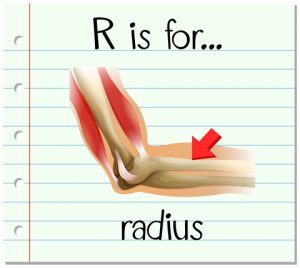 About ten years ago, it would have been audacious for me to set a goal or target of 500 blog postings. Yet, that’s what I did. Now, last week, the 500th was published. Having reached that goal or target, I have placed my quill on the shelf, so to speak. Yes, there no longer will be weekly editions of Ruminations from this pandemic “bat cave.”
About ten years ago, it would have been audacious for me to set a goal or target of 500 blog postings. Yet, that’s what I did. Now, last week, the 500th was published. Having reached that goal or target, I have placed my quill on the shelf, so to speak. Yes, there no longer will be weekly editions of Ruminations from this pandemic “bat cave.”
From time-to-time, we may be “moved” to Ruminate or possibly republish an oldie, but a goody. No promises.
Over all of these years, I’ve learned a great deal more from you than you could possibly have learned from my writings. After all, I am just one person, but “you” number in the thousands. So, THANK YOU, THANK YOU, and THANK YOU.
Through Ruminations, I’ve met a lot of new friends, both “virtually-online” and in person. Over the last 10 years, many readers have reached out to me by email or telephone, and I’ve been treated to meeting others at industry meetings. Once, I even met a reader who was visiting the house of worship I attend – sitting directly behind me. I guess it’s true that you have to behave at all times because you never know who will be watching. I’ll try to put that lesson into use.
Your thousands of comments of the years have enriched me. Your kind words have encouraged me. Your use of my postings in law school courses, at seminars, and in other publications has flattered me. Your proofreading and other suggestions have improved me.
And, I have a gift in return: this, the shortest Ruminations blog posting ever.
Yours for the sport (yes, that’s what I call it),
Ira
Print In 1970, the Harvard Business Review published an article by Peter Pyhrr in which he promoted the idea of zero-based budgeting. Different descriptions of this approach have been offered. Most explain that one should begin each periodic budgeting process tabula rasa – with a blank slate, and then justify every expense anew, not just adjust the last period’s budget by adding or removing items. A simpler explanation is that one should “rigorously review every dollar” in each successive budget. We doubt many have truly adopted this approach. It’s just too much work. It’s easier to cut and paste last year’s budget. In fact, momentum causes a repeating of last year’s expense items. Perceived “new” needs often result in just adding more expenditures each year. Only when income shortfalls force a review, do items get dropped.
In 1970, the Harvard Business Review published an article by Peter Pyhrr in which he promoted the idea of zero-based budgeting. Different descriptions of this approach have been offered. Most explain that one should begin each periodic budgeting process tabula rasa – with a blank slate, and then justify every expense anew, not just adjust the last period’s budget by adding or removing items. A simpler explanation is that one should “rigorously review every dollar” in each successive budget. We doubt many have truly adopted this approach. It’s just too much work. It’s easier to cut and paste last year’s budget. In fact, momentum causes a repeating of last year’s expense items. Perceived “new” needs often result in just adding more expenditures each year. Only when income shortfalls force a review, do items get dropped.  Though today’s posting isn’t really about “radius restrictions,” that’s what’s behind today’s observations about liquidated damage lease provisions. A radius restriction is a restrictive covenant. Thus, they have to be reasonable as to distance, duration, and scope. We’ve seen few modern cases centered on those parameters. So, we think restrictions that are coterminous with the lease term are reasonable as to time. Distances corresponding with a shopping center’s market area also seem reasonable. Limiting their scope to a lease’s use clause also seems to pass muster.
Though today’s posting isn’t really about “radius restrictions,” that’s what’s behind today’s observations about liquidated damage lease provisions. A radius restriction is a restrictive covenant. Thus, they have to be reasonable as to distance, duration, and scope. We’ve seen few modern cases centered on those parameters. So, we think restrictions that are coterminous with the lease term are reasonable as to time. Distances corresponding with a shopping center’s market area also seem reasonable. Limiting their scope to a lease’s use clause also seems to pass muster.  Here at Ruminations, we often short-cut any deep thinking about proposed agreements or about provisions within those agreements when we see something we call a “circuit-breaker.” For example, we don’t drill down into rent damage clauses when a lease’s term is one year. After all, it takes time for a tenant to fail, and how much time will really be left on the lease after that date? The same goes for an agreement that allows either party to terminate it on 30 or 60 days’ notice for any reason or no reason at all. Why cogitate when a party can “kick-out” of an unfavorable agreement or relationship?
Here at Ruminations, we often short-cut any deep thinking about proposed agreements or about provisions within those agreements when we see something we call a “circuit-breaker.” For example, we don’t drill down into rent damage clauses when a lease’s term is one year. After all, it takes time for a tenant to fail, and how much time will really be left on the lease after that date? The same goes for an agreement that allows either party to terminate it on 30 or 60 days’ notice for any reason or no reason at all. Why cogitate when a party can “kick-out” of an unfavorable agreement or relationship?  We’re all seeing and hearing clashing views on why the Postal Service’s delivery times are lengthening. Those views may differ, but there doesn’t appear to be any meaningful dispute that it now takes longer to get a letter than we’ve experienced in the last 30 or more years. We’re not going to get involved in the morass of election debates. Instead, Ruminations wants to cut through all of that fog and remind our friends that our mailed notices aren’t getting there as fast as they used to “get.” Worse for our industry, certified mail almost always took longer to reach its destination than “plain” first-class mail. So, when you read about how long the mail is now taking (and there’s been some private testing confirming longer delivery times), add more time if you use certified mail. And, if the commanding document demands “registered” mail, realize that “registered” is not “certified” mail. It takes even longer to arrive at its destination.
We’re all seeing and hearing clashing views on why the Postal Service’s delivery times are lengthening. Those views may differ, but there doesn’t appear to be any meaningful dispute that it now takes longer to get a letter than we’ve experienced in the last 30 or more years. We’re not going to get involved in the morass of election debates. Instead, Ruminations wants to cut through all of that fog and remind our friends that our mailed notices aren’t getting there as fast as they used to “get.” Worse for our industry, certified mail almost always took longer to reach its destination than “plain” first-class mail. So, when you read about how long the mail is now taking (and there’s been some private testing confirming longer delivery times), add more time if you use certified mail. And, if the commanding document demands “registered” mail, realize that “registered” is not “certified” mail. It takes even longer to arrive at its destination.  According to Lawrence Peter “Yogi” Berra (May 12, 1925 – September 22, 2015), late of Montclair, New Jersey, “You can observe a lot by just watching.” That’s how we get our “experience” – by watching what we ourselves have done and by what others have done. We can learn from those experiences, “ours” and “theirs.” That’s one reason we read court decisions. Doing so allows us to safely observe what others have done without getting burned, even when the situations covered by these decisions invoke another Yogiism: “It’s deja vu all over again.”
According to Lawrence Peter “Yogi” Berra (May 12, 1925 – September 22, 2015), late of Montclair, New Jersey, “You can observe a lot by just watching.” That’s how we get our “experience” – by watching what we ourselves have done and by what others have done. We can learn from those experiences, “ours” and “theirs.” That’s one reason we read court decisions. Doing so allows us to safely observe what others have done without getting burned, even when the situations covered by these decisions invoke another Yogiism: “It’s deja vu all over again.”
 There’s a song,
There’s a song, 
Recent Comments